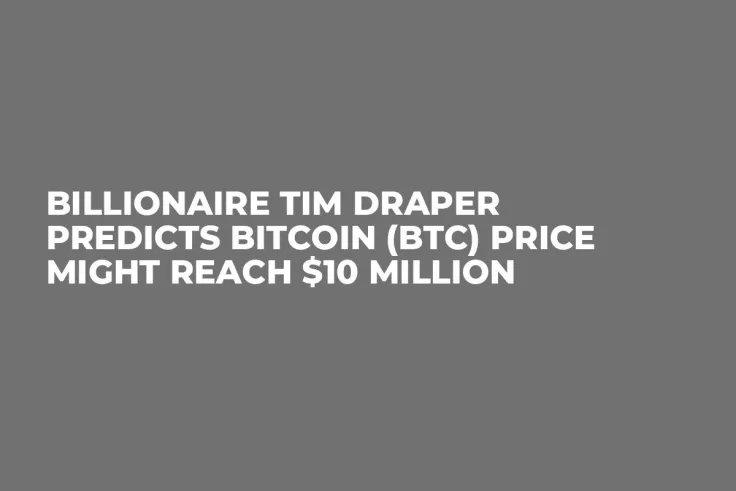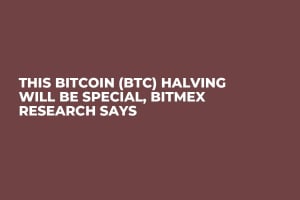
Disclaimer: The opinions expressed by our writers are their own and do not represent the views of U.Today. The financial and market information provided on U.Today is intended for informational purposes only. U.Today is not liable for any financial losses incurred while trading cryptocurrencies. Conduct your own research by contacting financial experts before making any investment decisions. We believe that all content is accurate as of the date of publication, but certain offers mentioned may no longer be available.
In a recent interview, prominent venture capitalist Tim Draper predicted that the price of Bitcoin could potentially surge to $10 million.
"Now, $250,000 or a million, or $2 million, or even $10 million are the numbers that are probably going to happen for a couple of reasons…When you can buy your food, clothing, shelter, and pay your taxes all in Bitcoin, that's a done deal. You won't want to use any other currency," Draper explains.
The billionaire, who is known for his early bets on companies like Skype, predicts the devaluation of the U.S. against Bitcoin.
Speaking of the upcoming halving event, which is going to take place in just hours from now, Draper predicts that the price of the largest cryptocurrency is going to surge again.
It is worth noting that this halving cycle is different due to the fact that the price of Bitcoin reached a new lifetime high ahead of the block reward reduction thanks to the success of spot ETFs. Draper described the ETFs as an "accelerant" that he was not predicting.
Draper, an early Bitcoin investor, once correctly predicted that the price of the largest cryptocurrency would be able to top $10,000 in 2017.
As reported by U.Today, Draper has also repeatedly forecasted that Bitcoin would reach $250,000 in 2022. However, this prediction turned out to be inaccurate. "I think my hubris got the better of me," Draper said. The billionaire explains that his prediction did not materialize since regulators got heavy-handed. Draper also expected Bitcoin payments to become "prevalent" in 2022, but this was not the case. "Those are the two things that slowed down the progress," he added.

 Dan Burgin
Dan Burgin Denys Serhiichuk
Denys Serhiichuk Gamza Khanzadaev
Gamza Khanzadaev Tomiwabold Olajide
Tomiwabold Olajide